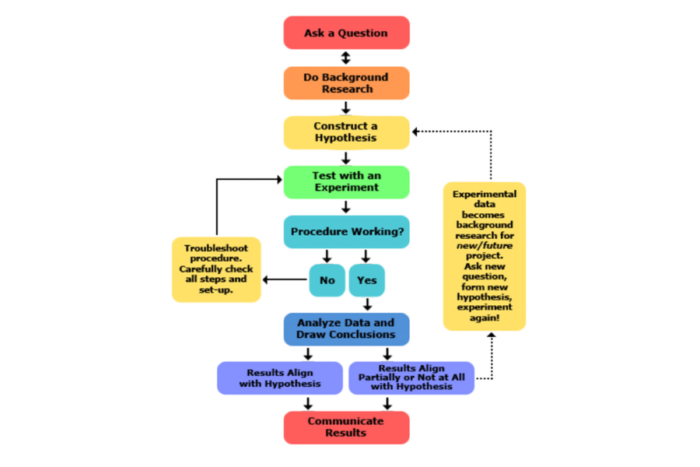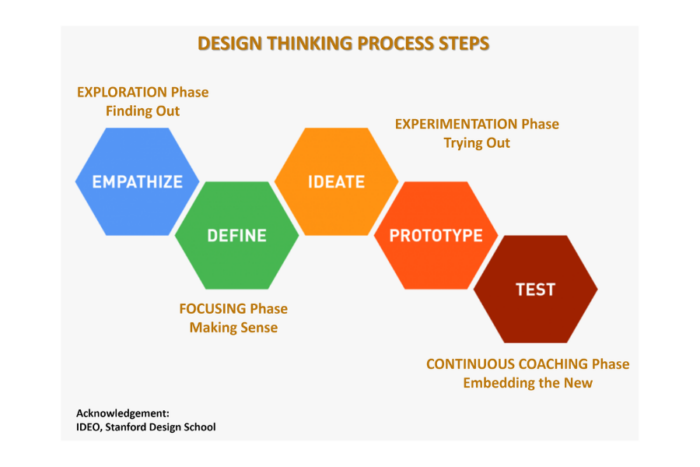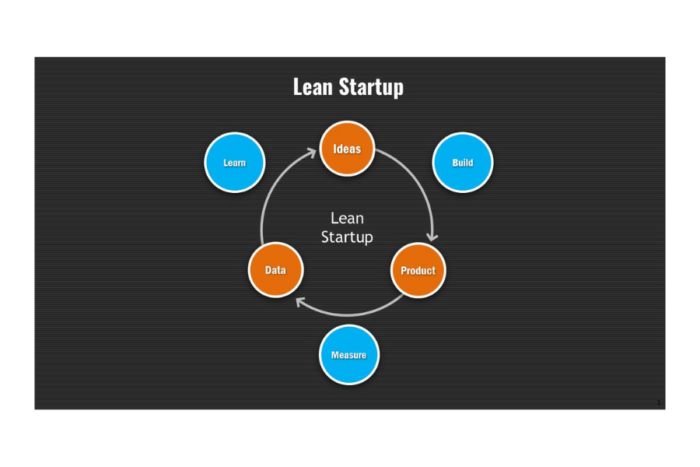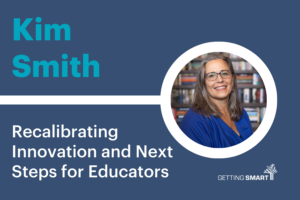How to Design Schools to Grow Thriving Adults: A Provocation
Key Points
-
Focusing on processes such as design thinking, engineering design, and the scientific method equips students with practical skills to thrive in real-world scenarios.
-
Traditional subjects are important, but integrating them with real-world applications through project-based and competency-based models enhances student engagement and long-term success.

America’s education system was a groundbreaking effort to help a growing nation thrive in the 19th century. Now, 200 years later, the world has changed; the horizon looks drastically different. Collectively, we need to redesign our education system to enable all of our children — and, by extension, our nation — to thrive today and tomorrow. “Horizon Three” or “H3” names the future-ready system we need, one that is grounded in equity serving learners’ individual strengths and needs as well as the common good. This series provides a glimpse of where H3 is already being designed and built. It also includes provocations about how we might fundamentally reimagine learning for the future ahead. You can learn more about the horizons framing here.
By: Sujata Bhatt
You’re a mom. A dad. A grandparent or godparent or stepparent or close family friend. What do you want for the children you care about?
Are you truly excited that they get all ‘A’s’ and high scores on their SATs or ACTs? Is that the goal in life? Or do you want them to be able to make their way in the world, deal with ups and downs, pick themselves back up, and keep going forward in ways that help them and the world thrive?
As a mom, to the extent that I wanted the former, it was because I thought it would help with the latter. Good scores meant a good college which meant good opportunities which (hopefully) meant good life outcomes. Everything was a proxy for something else – for the next step in life.
But what about life itself?
My child is now 26. I look back and see the most important things are:
- Can he take care of himself?
- Does he know how to make decisions responsibly?
- Can he get along with others?
- Is he able to do things in the world?
- Is he able to build happiness alone and in community?
I look back on the education he received. What, if anything, helped contribute to positive answers to this list of questions? Sadly, only three experiences stand out:
- Competitive Soccer. Where he had to make hard choices about personal success vs. team success and how to get along with – and make things happen with – kids from a wild variety of different backgrounds. And enjoy their company. And learn from them. How to work hard – brutally, demandingly hard. How to celebrate success and pick yourself up from the misses and losses. And most importantly, how to show up day after day even when your mind and body were saying, ‘Do we really have to?’
- Running an AirBnB. Where he learned how to make a business work. How to please customers, take responsibility for the product and service. Deal with problems and crises (why do showers break so often?). Look at revenue. Feel satisfied about getting Superhost status. Wanting to maintain Superhost status.
- A Data Science Course in College. Where he learned how to scrape social media and use ArcGIS to build something he cared about: a map to the Nipsey Hussle memorial murals being created across the globe in the aftermath of the rapper’s murder. This was his way of taking pain and grief and transmuting it into tribute and community.
Note that there’s no mention of any core classes. Any traditional subjects that are the bread and butter of school. English. History. Math. Science.
Rather, each of the meaningful experiences were about the real world: about learning through doing, and doing via learning – in relation to other humans.
Core Subjects vs. Core Processes
The core subjects or disciplines have been with us for a long time. Their roots lie in the classical and medieval Trivium (grammar, rhetoric, and logic) and Quadrivium (arithmetic, geometry, music, and astronomy), modified in the 18th and 19th centuries as the scientific and industrial revolutions, as well as the nation-state and empire, expanded the number of disciplines needed to define (and conquer) the world. In those centuries we added biology and chemistry, algebra and calculus, anthropology and sociology, and foreign languages to the domains of knowledge.
Content knowledge is important. There is no doubt about that. But if your goal is to become something other than a college professor, you want to learn to do things with your content knowledge. To do things, you don’t just need to know ‘the what’ (content) but also ‘the how’, or, in other words, application processes.
In the past century, in addition to accumulating content, the human species has been busy building, testing, defining, and iterating on processes – systematic sequences of actions or methods – so that we don’t start from scratch every time we want to accomplish something.
Most of us learned the scientific method in school. It’s the process scientists use to produce and test scientific knowledge. Like the core subjects, it has ancient roots, updated by the Classical Islamic World, and then later Scientific Revolution and Enlightenment thinkers, with parallels in many other cultures.
In modern times processes and methods have grown even more prevalent.
A decade ago I started The Incubator School, an entrepreneurship-themed school in the Los Angeles Unified School District. It survived for four years before politics shut it down, despite it being one of the most diverse and highest-performing schools in the nation’s second-largest district. Back then, we began designing a school based on the clear evidence that kids want to learn in order to create value in the world, not to do well on middle school tests that led to high school tests that led to SATs and college tests and so on. Kids told us this. They were excited by learning when they could do things with it.
We tried to break out of the subjects/disciplines paradigm and look at what knowledge kids needed to make their way in the world. We came up with IncSchool Fundamentals, a processes map that emphasized something we called solutions thinking: human-centered design, engineering design, mathematical modeling, and lean startup processes or methodologies.
The table below outlines four key processes that can help young people create value in the real world. Through repeating these processes to solve different problems in different contexts requiring the acquisition of different content knowledge, kids start to feel competent. When faced with a new challenge, they have a repertoire of process tools in their toolbelt. They can use these processes to go from nothing to something because they’ve repeatedly applied them and they know how to learn what they don’t know (the content and context of the new situation they find themselves in).
Because these are the same basic processes adults are using, they can more easily grow into competent adults – rather than those interns you have to train from ground zero because although they know stuff, they don’t know how to do stuff.
Breaking Free of the Content-Based Organization of School
I spent some concentrated time with ChatGPT4o to model what this process focus could mean for rethinking the core content structure of schooling.
All too often competency-based schools rely on mapping key competencies (usually some variation of the Five Cs – Creativity, Critical Thinking, Collaboration, Communication, and Citizenship) onto project-based learning powered by some version of a design thinking process. I argue that we need more, more robust, and more rigorous processes – with supporting activities, competencies, and occupations mapped to them. The table below is a sketch of what this might look like.
Crosswalk of Core Processes with Key Competencies, Related Occupations
| Core Processes | Supporting Activities | Key Competencies | Related Occupations (Professions expected to grow in the next decade are in bold) |
|---|---|---|---|
| Human-Centered Design/Design Thinking | Observation and Research Exploring Possibilities Strategic Planning Creative Ideation Experimentation and Refinement Implementation Evaluation and Communication | Creativity (Generating ideas, designing solutions) Critical Thinking (Analyzing user needs, refining solutions) Collaboration (Working with diverse teams) Communication (Sharing ideas, receiving feedback) Citizenship (Creating solutions that impact communities positively) | UX/UI Designers and Product Designers Architects Educators Marketing Strategists Entrepreneurs Graphic Designers Interior Designers Fashion Designers Industrial Designers Retail Store Managers Carpenters Tailors Welders Florists Hairdressers Event Planners Customer Service Representatives Sales Associates Freelancers (Various Creative Fields) Nurses Social Workers Counselors |
| Lean Startup / Entrepreneurship | Exploring Possibilities Strategic Planning Creative Ideation Experimentation and Refinement Implementation Evaluation and Communication | Critical Thinking (Evaluating market needs, testing hypotheses) Creativity (Developing innovative business models) Collaboration (Working with stakeholders and teams) Communication (Pitching ideas, gathering feedback) Citizenship (Building socially responsible businesses) | Entrepreneurs Business Analysts Product Managers Marketing Strategists Growth Hackers Sales Managers Small Business Owners Real Estate Agents Insurance Agents Construction Supervisors General Contractors Retail Store Managers Social Media Managers Freelancers Plumbers HVAC Technicians Electricians Auto Repair Technicians Barbers Food Truck Operators Home Health Aides Community Health Workers |
| Engineering Design | Exploring Possibilities Strategic Planning Creative Ideation Experimentation and Refinement Implementation Evaluation and Communication | Critical Thinking (Analyzing technical challenges, refining designs) Creativity (Innovating technical solutions) Collaboration (Working with engineers, designers, and clients) Communication (Presenting designs, documenting processes) Citizenship (Ensuring designs meet societal needs) | Mechanical Engineers Civil Engineers Electrical Engineers Industrial Designers Construction Managers Welders CNC Operators Machinists Drafting Technicians Surveyors Plumbers Carpenters Solar Photovoltaic Installers Electricians HVAC Technicians Elevator Installers Crane Operators Heavy Equipment Operators Cabinetmakers Ironworkers Occupational Therapists Physical Therapy Assistants |
| Scientific Method | Observation and Research Experimentation and Refinement Evaluation and Communication | Critical Thinking (Hypothesis testing, data analysis) Collaboration (Working in research teams, peer review) Communication (Publishing findings, presenting results) Creativity (Designing experiments) Citizenship (Conducting ethical research) | Scientists (Biologists, Chemists, Physicists) Medical Researchers Environmental Scientists Data Scientists Lab Technicians Quality Control Inspectors Veterinary Technicians Food Safety Inspectors Forensic Technicians Industrial Hygiene Technicians Water Treatment Operators Waste Management Technicians Fire Inspectors Process Technicians Environmental Compliance Inspectors Pharmacy Technicians Clinical Laboratory Technicians Pest Control Workers Material Testers Pharmaceutical Sales Representatives Dietitians Speech-Language Pathologists |
| Systems Thinking | Observation and Research Exploring Possibilities Strategic Planning Evaluation and Communication | Critical Thinking (Analyzing complex systems) Collaboration (Engaging multiple stakeholders) Creativity (Envisioning systemic solutions) Communication (Explaining system dynamics) Citizenship (Addressing societal and environmental impacts) | Environmental Scientists Urban Planners Systems Analysts Policy Makers Economists Supply Chain Managers Operations Managers Logistics Coordinators Quality Assurance Managers Sustainability Coordinators Industrial Production Managers Facility Managers Public Health Officials Occupational Health and Safety Specialists Fire Chiefs Emergency Management Directors Energy Managers Water Resource Specialists Environmental Compliance Specialists Community Development Officers Case Managers Public Health Nurses |
| Mathematical Modeling | Strategic Planning Evaluation and Communication | Critical Thinking (Developing and interpreting models) Collaboration (Working with domain experts) Communication (Explaining model results) Creativity (Applying models to new problems) | Mathematicians Data Scientists Economists Operations Research Analysts Financial Analysts Statisticians Actuaries Market Research Analysts Logistics Analysts Risk Management Specialists Credit Analysts Financial Planners Cost Estimators Budget Analysts Insurance Underwriters Accountants Loan Officers Fraud Examiners Investment Analysts Survey Researchers Health Information Technicians |
| Creative Process | Inspiration and Idea Generation Concept Development Design and Pre-Production Creation and Production Feedback and Revision Finalization Presentation and Distribution Reflection and Learning | Creativity (Generating and refining ideas) Critical Thinking (Evaluating and iterating concepts) Collaboration (Working with teams, gathering feedback) Communication (Conveying ideas, presenting work) Citizenship (Creating works that impact society or culture) | Filmmakers Writers Visual Artists Musicians Graphic Designers Animators Editors Sound Designers Set Designers Fashion Designers Photographers Art Directors Illustrators Video Game Designers Screenwriters Theater Directors Cinematographers Craftspersons Independent Creators Performing Artists |
This is a clear roadmap from a finite set of processes expanding outwards to the key supporting activities those processes entail, to how those processes and activities grow the five core competencies, and last but certainly not least what careers and professions use them. I specifically asked ChatGPT4o for 20 occupations per row, with a mix of hands-on, caring, technical, and high-growth professions. Of course, there are many more.
When I asked it for ‘core creation processes’ that cut across occupations, ChatGPT4o also suggested some other more specialized ones such as Agile Development (Scrum/Kanban), Digital Transformation, Six Sigma, Service Design, and Supply Chain Management.
You could imagine 15-25-year-olds choosing to explore these as they became more comfortable applying some of the more crosscutting ones, as they understand their own interests better, and as they become ever more aware of what sorts of things they do (and don’t) want to do in the world. And along the way, they’ll pick up the content they need to get things done.
As the world changes, particularly with the implementation of AI in all aspects of work, these processes may shift and new processes may become important. The future is not going to be constant, and grounding an education system in process rather than content can enable agility.
Sujata Bhatt is the Founder & CEO of Incubate Learning, Social Entrepreneur in Residence at Ward Infinity at Johns Hopkins University + Medicine, and Capstone faculty in the Education Entrepreneurship M.S.Ed program at the University of Pennsylvania Graduate School of Education
This blog series is sponsored by LearnerStudio, a non-profit organization accelerating progress towards a future of learning where young people are inspired and prepared to thrive in the Age of AI – as individuals, in careers, in their communities and our democracy.
Curation of this series is led by Sujata Bhatt, founder of Incubate Learning, which is focused on reconnecting humans to their love of learning and creating.











0 Comments
Leave a Comment
Your email address will not be published. All fields are required.